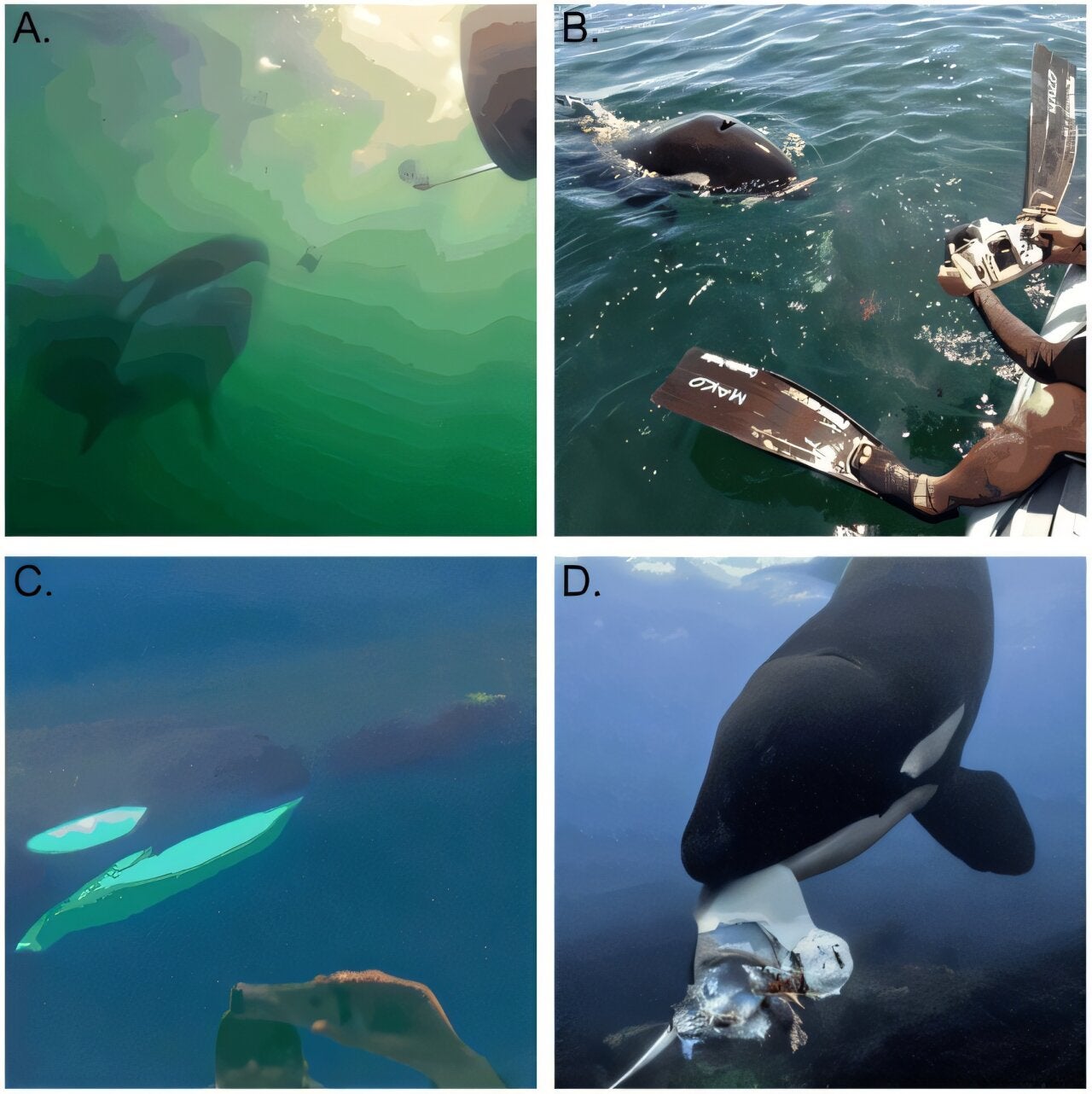Killer whales sometimes offer to share their prey with people, a new study finds, hinting that some intelligent orcas may be attempting to develop relationships with humans.
Pet animals such as cats sometimes leave prey at their owner’s feet or doorstep, often as a display of affection or as a sense of sharing food with "family". But such behaviour hadn’t been documented among animals in the wild. Until now, that is.
The new study documenting orcas offering food to humans in the wild challenges assumptions about animal social behaviour, revealing a poorly understood interplay between marine mammals and humans that’s playful and social.
In the new study, published in the Journal of Comparative Psychology, researchers from Canada, New Zealand, and Mexico document 34 interactions over two decades involving orcas attempting to offer food to humans. These incidents took place across the world, in the oceans off California, New Zealand, Norway, and Patagonia.
"Orcas often share food with each other. It’s a prosocial activity and a way that they build relationships with each other,” study lead author Jared Towers said. “That they also share with humans may show their interest in relating to us as well.”

The researchers analysed each of the 34 instances of food sharing and found that people were in the water when the orcas approached them on 11 occasions. In 21 instances the humans were on boats and in two instances they were on the shore.
In each of these cases, the killer whales approached the people on their own and dropped their prey in front of them. “This behaviour may represent some of the first accounts of a wild predator intentionally using prey, and other items, to directly explore human behaviour,” the researchers wrote.
“These features all suggest that killer whales possess the capacity and motivation to share for multiple reasons which could include short– or long-term tangible, intellectual, or emotional benefits, none of which are mutually exclusive.”
The researchers also found that the orcas waited around to see what would happen after they made the offering to humans in all but one instance.
The marine mammals also tried to be persuasive, offering the food more than once in seven cases after the people initially refused it.
Since orcas are intelligent and social animals, the researchers suspect food sharing may be a way to build relationships with kin and unrelated individuals.
As the killer whales often hunt large prey, they have food to spare.
"Offering items to humans could simultaneously include opportunities for killer whales to practise learned cultural behaviour, explore or play and, in so doing, learn about, manipulate or develop relationships with us," the study said.
"Given the advanced cognitive abilities and social, cooperative nature of this species, we assume that any or all these explanations for, and outcomes of such behaviour are possible.”
Dentist cracks centuries-old puzzle hidden in famous Da Vinci drawing
Why is the UK experiencing a heatwave and what can people do in response?
Gene discovery may lead to ‘exercise pill’ for Alzheimer’s patients
Stone Age Belgians had darker skin tone, fossil reveals
Cold sore virus takes over human DNA within just one hour, study finds







